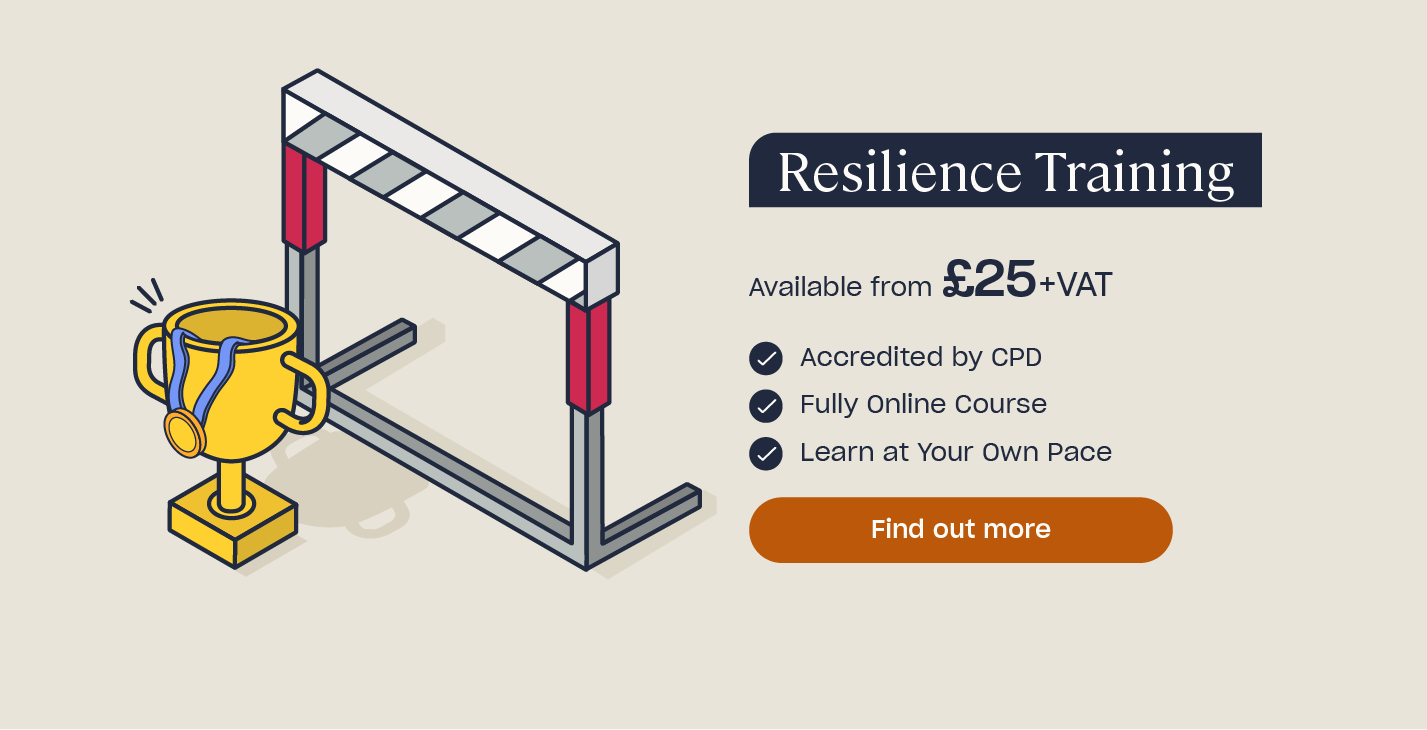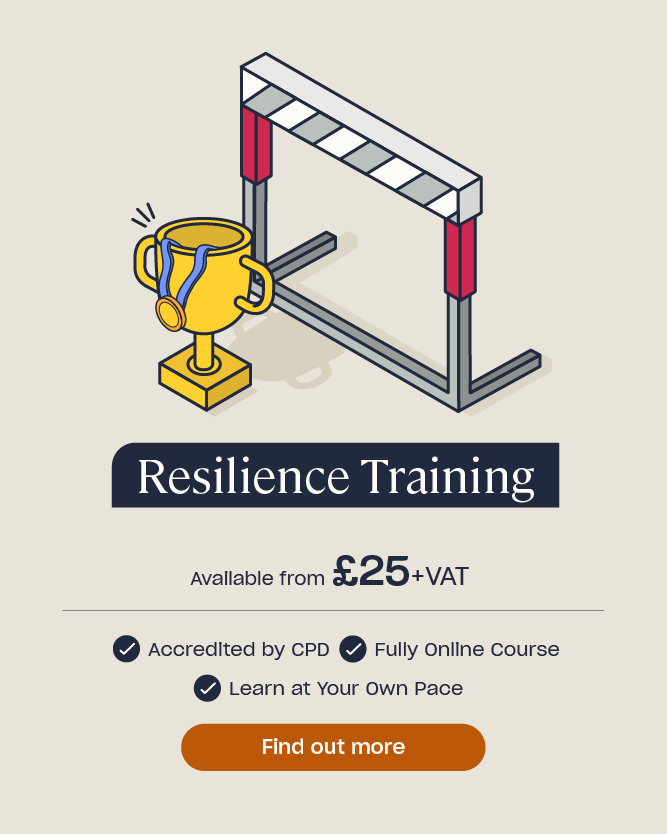The Cost of Presenteeism in the Workplace & Why it’s Not Just About Money
Presenteeism is an increasingly common issue that affects all types of workplace. In fact, it’s often cited as the biggest threat to workplace productivity in the UK and is characterised by tired, unmotivated and unwell employees who attend work regardless of how bad they’re feeling.
The cost of presenteeism is high, as not only does it cause productivity to drop, costing employers money, but it also adversely impacts workplace morale, health and safety and the wellbeing of employees.
In this article we’ll cover what presenteeism is and what can cause it, as well as the financial and human costs it creates. We’ll also explain some of the things you can do to reduce presenteeism in your organisation.

What is Presenteeism?
Presenteeism is defined as reduced productivity at work due to health problems. It occurs when someone attends work despite being either physically or mentally unwell. Although, in most cases, they will be trying to work as hard as usual, their productivity and quality of work suffers because of how they’re feeling.
This creates a ‘productivity gap’ between how productive they would usually be and what they can achieve while unwell. Presenteeism is costly for employers who are paying the same amount for lower quality or less work, as well as harmful to the person doing it and potentially those around them.
Identifying and measuring presenteeism is challenging. Employers may not recognise that it’s happening because employees still show up to work and may hide any symptoms of being unwell. Or, they may not know what presenteeism is or be inclined to ignore it, thinking that the more their employees work, the better.
However, you can measure the impact of presenteeism on employee productivity using the Stanford Presenteeism Scale.
Presenteeism in Remote Workers
The increase in hybrid and remote working has made identifying presenteeism more difficult. Many peoples’ homes have become their workspace and, while working from home can offer freedom and flexibility, it can also cause the line between work and life to blur.
This can mean that some remote workers struggle to ‘switch off’ and will work from home when they wouldn’t have gone to work otherwise. For example, if a remote worker is unwell, they may be more likely than a non-remote worker to still attend work as they don’t have to leave the house and won’t infect other people.
There’s also less risk of their coworkers or managers realising they’re unwell or working at a reduced capacity when they’re only communicating through screens. They may even feel more obligated to attend work while sick because of the flexibility remote working affords them and this is just one of the reasons why presenteeism is on the rise.

Presenteeism Vs Absenteeism
While presenteeism involves an employee attending work when they shouldn’t because they are unwell, absenteeism is the opposite and occurs when an employee repeatedly does not come to work, without good reason.
It may come as a surprise, but presenteeism is actually a bigger drain on workplace productivity than absenteeism. This is because people who take time off work can rest and recover, while those who attend work unwell can prolong their illness and, in turn, the time they spend in the productivity gap. The overall cost of presenteeism can end up being more than if they had just taken a day off.
Leavisim is another workplace occurrence that drains productivity. This is when employees use their annual leave either to recover from sickness instead of taking a sick day, or to catch up on work at home.
You may think that leaveism would benefit employers by increasing the hours employees work, without increasing pay. In actual fact, like presenteeism, leaveism stops employees from taking a well-needed break from work which can reduce their overall productivity and eventually result in burnout or brownout.
Burnout is where a person becomes completely overwhelmed, primarily by overworking or work-related stress, and has a physical or mental collapse. It can result from presenteeism.
Brownout is a form of presenteeism where a person comes to work but is tired, withdrawn, disinterested and discontent with their role or workplace, leading to reduced motivation and unproductiveness. You can learn about managing stress at work here.

These phenomena are all detrimental to workplace productivity and all stem from flaws in an organisation’s culture and policies.
Causes of Presenteeism
Presenteeism can happen in any kind of workplace but is more common in offices rather than settings that measure productivity based on physical acts, such as a construction site.
Presenteeism is also common among workers who feel responsible for others in their role, such as health or social care workers. However, there are lots of other factors involved in why someone might choose to come into work while unwell, including:
- A lack of job security and/ or fear or seeming dispensable.
- Fear of being reprimanded or perceived as not working hard enough.
- Worrying they have taken too much time off already.
- Feeling obligated to work remotely.
- Being unable to afford a sick day and/or a lack of paid sick leave.
- Thinking they are the only person who can perform their role in a company or that others will be impacted if they are absent, particularly if there are staff shortages.
- Not wanting to miss a deadline or having a heavy workload.
- Company loyalty and desire to be reliable.
- Perceived pressure from management.
- Unwillingness to disclose the reason for absence or feeling it isn’t ‘good enough’, for example, worrying that disclosing a mental health condition will lead to stigma or lose them opportunities.

Effects of Presenteeism in the Workplace
Whilst presenteeism can cause your business to lose money and valuable working days, the real cost of presenteeism is a more human one. Alongside the impact it has on the UK economy, presenteeism also causes the following problems:
- An unhealthy workplace – if an employee comes to work with a contagious illness, they can easily pass this illness on to the people they work with, causing them to become unwell, too. This can lead to increased absence rates and even more presenteeism.
- Employee’s aren’t able to recover – if an employee repeatedly comes into work while unwell, particularly if they are suffering from a mental health issue, they won’t get the time they need to rest and recover which could prolong or worsen their illness. If they are unable to work at their usual capacity or quality they may miss targets or deadlines which can cause a great deal of stress.
- Lower workplace morale – working alongside a team-mate who is unmotivated, unhappy or disinterested can be an emotional drain on all members of the team and affect relationships. This can negatively impact morale and the workplace atmosphere, reducing motivation and productivity all round.
- Unsafe working – employees who come to work while unwell are more likely to have and/or cause workplace accidents as they are less focussed on performing tasks properly and safely. This puts both them and others at risk.
- Lack of progress – presenteeism can cause a lack of personal and professional progress. If people aren’t giving tasks their full commitment then they’re unlikely to develop their skills and, if they’re not feeling great, may be less interested in developing themselves. What’s more, a lack of progress can cause roadblocks for other colleagues who may be waiting for the sick employee to get back to full health before assigning them tasks or waiting for them to get on top of their to-do list.
- Reduced quality of work – even if someone is producing the same quantity of work while unwell, it’s likely that the quality will suffer and they may make mistakes that cost time and money. This can have a ripple effect, impacting other people’s work if they are relying on this person or working as a team.
Need a Course?
Our Resilience Training Course will help workers to build on their own levels of personal resilience and understand why it is important. To do this, it provides actionable steps for developing the five pillars of resilience: emotional wellbeing, inner drive, future focus, relationships and physical health.
Presenteeism Statistics in the UK
Presenteeism is becoming more and more common in UK workplaces, particularly among remote workers, and it’s an issue that employers, managers and supervisors literally cannot afford to ignore. The following statistics show the true cost of presenteeism in the UK:
- The cost of poor mental health of employees is estimated to be between £42bn and £45bn per annum, of which £29.3bn is due to presenteeism.
- 65% of HR staff report observing presenteeism in the workplace, while 81% report observing it among those who work from home.
- Almost half of workers (46%) admit to working despite not feeling physically or mentally well enough to perform their role.
- In 2022, employees lost 20.2% working hours from being unproductive, the equivalent of 51 productive days per employee, per year.
How to Reduce Presenteeism in Your Workplace
As an employer you need to look at whether some of the causes of presenteeism we listed earlier may be at play in your workplace. If so, there are some changes you can make to encourage healthier working among your employees, including:
- Promoting a wellness culture – your organisational culture should promote the mental and physical wellbeing of everyone working there. You could introduce health promoting benefits, such as a cycle to work scheme, discounted gym memberships, subscriptions to mental wellbeing apps or private healthcare.
- Establish and communicate a strong sickness policy – you must communicate to employees that taking time off to recover when they’re unwell is important, encouraged and will not have negative consequences. Managers must also follow this policy to set a good example.
- Providing job security – if you can, offer guaranteed hours of work for employees rather than zero hour contracts and provide sick pay. This will give employees confidence that they can take time off for sickness without facing any negative repercussions.
- Improving communication – one problem with remote working can be a lack of regular communication. When line managers regularly check in with employees, they can identify if a worker is unwell or struggling with their workload and needs support. Managers should be trained to recognise the signs of physical and mental health problems and know how to provide support. You can learn about supporting mental health at work here.
Mental Health Awareness
To increase your understanding of mental health and wellbeing, including how to support others suffering with their mental health and initiate conversations about mental health, you can take a look at our Mental Health Awareness course.
- Review absence policies – having a strict absence policy can drastically increase presenteeism. To make your absence policy less threatening to employees, make trigger points after certain lengths of absence positive rather than negative. For example, rather than giving a ‘warning’ after a length of absence, offer a wellness discussion to determine any issues and potential support you can provide to help them get healthy and back to work.
- Consult your staff – to get to the root cause of presenteeism in your workplace, you need to know what your staff think. You can put out an anonymous survey to staff to find out if there is anything that would put them off taking a sick day, such as an excessive workload or pressure from management. This will help to identify where changes need to be made in your organisation.

When people don’t feel well, they can’t do their best work or be their best selves. If you want to create an organisation where employees are motivated, engaged and productive, you must accept that absences will happen, within reason. It’s your responsibility as an employer to promote wellbeing to reduce presenteeism, but also to make sure your employees feel they can take a day off when they need it.
Further Resources:
- How to Promote Positive Mental Health for Healthcare Workers
- Managing Mental Health & Wellbeing in Hospitality
- Work Related Stress: Your Responsibilities as an Employer
- Resilience in the Workplace: What are the Benefits and How Can Businesses Develop It?
- 6 Types of Leadership: Which Leadership Style is Right For Me?
- How to Motivate a Team
- Mental Health Awareness for Managers Training Course










